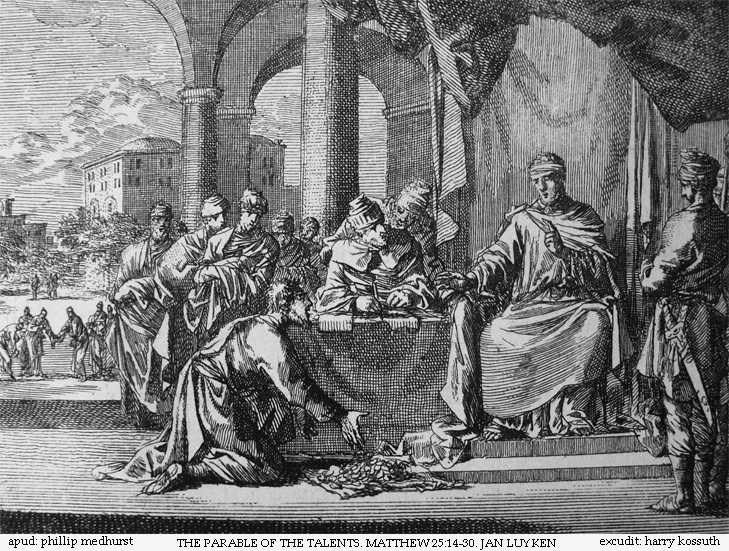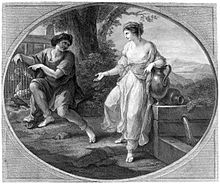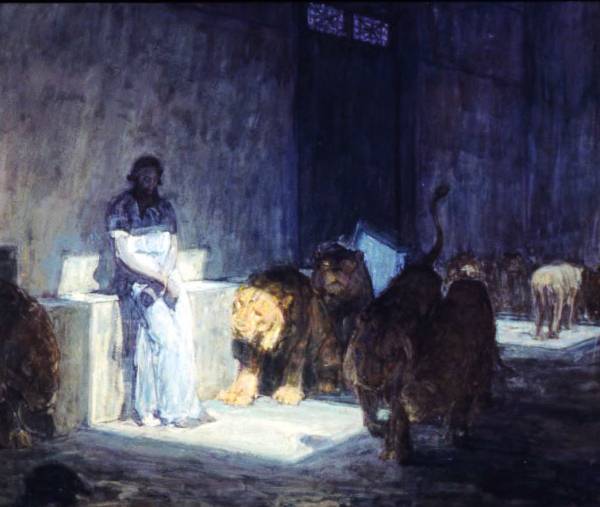* * * *

The teachings of Jesus: The Parable of the Talents, as etched by Jan Luyken.
* * * *
December 21, 2015 – This post continues the theme of Bible study to open your mind and develop your talents. On that note, the Daily Readings for Friday, December 18, with Zechariah 7:13: “Since they refused to listen when I called to them, I would not listen when they called to me, says the Lord.” Which makes sense. If you don’t pay attention to God, chances are “He” won’t pay attention to you! And it’s a pretty good summary of the theme of this blog.
The goal here is to help you – and me – get a better feel for communicating with the Force that Created the Universe. On that note, the Gospel for that Friday, December 18, was Matthew 25:14-30. It told the Parable of the talents, shown above. In that parable, a master gave some “talents” to three servants. (Taken literally, a “talent” was worth 50 or 60 shekels, and so was a good chunk of change.) Then the master went off on a long journey. When he got back home, he took stock of his “investment.” The servant with 10 talents gave back the 10 “invested,” plus 10 talents more. (A return of 100%.) The servant who got five talents did the same. (Returned the original five and another five more, another 100% return.)
Then came the “wicked and slothful” servant.
That servant didn’t develop his talents. He just buried the money in a hole. (Metaphorically, he – the slothful servant – fit his talents into a pre-formed, pre-shaped cubby-hole.) So what the master got back on his investment was nothing more than the original talent he’d given out.

Doing that just makes you another carbon copy Christian.
Put another way, many Christians seem to think their whole job here on earth is: Avoid sin. And that is important. It’s certainly important to avoid really stupid mistakes, which tend to have really bad consequences. But is that the main job of a Christian?
Isn’t the main job of a Christian to “develop his talents.” Which in turn means a real Christian is bound to make mistakes. Which could be a good thing, keeping him or her from developing a “holier than thou” complex. On that note see Sin and cybernetics: “Maybe the concepts of sin, repentance and confession are simply tools to help us realize the purpose Jesus had for us, to wit: to ‘live life in all its abundance.'” (John 10:10; the second part.)
On the matter of carbon copy Christians, see “Another brick in the wall” and Reflections on Volume 3. And since we’re looking back on posts from this past year, here are some more:
The Bible and mysticism said Christianity is about “obtaining unity with God, through Christ.” And that fits in with the original meaning of mystic. (One “who seeks by contemplation and self-surrender to obtain unity with or absorption into the Deity or the absolute.”) Also this:
The terms “mystic” or “mysticism” seem to throw Southern Baptists and other conservative Christians into apoplexy. (Try it sometime!!!)
But of course I was only joking… (About the apoplexy.) On a related note, see The True Test of Faith. It imagined two Christians who both learned at the end of their lives that The Faith was a hoax. The guy who spent his life “avoiding sin” was really mad. But the guy who used the Bible to develop his talents said, “You know, I wouldn’t change a thing.” (Thus “True Test of Faith…”) And finally, see Shadrach and the Fiery Furnace on three other “good and faithful servants.” They were about to be thrown into a burning fiery furnace. And they knew that God could save them if He wanted. But they also knew that that might not fit in with His purpose.
Thus the “real kicker in the story” came in Daniel 3 (16-18). There the three men – on the cusp of being thrown into the fiery furnace – gave their answer to King Nebuchadnezzer:
Shadrach, Meshach, and Abednego answered the king, “O Nebuchadnezzar… If our God … is able to deliver us, he will deliver us… But if not, be it known to you, O king, that we will not serve your gods and we will not worship the golden statue that you have set up.”
Note the emphasized “But if not…” So the three men were really saying something like this: “O Nebuchadnezzar, it’s up to God Himself to decide if He’ll deliver us… God certainly has the power to save us, but even if He decides not to, we will still believe in and follow Him…”
Now that is a true test(ament) of faith…
* * * *

Another guy – Daniel – who gave a “true test(ament) of faith…”
* * * *
The upper image is courtesy of the Wikipedia article, Parable of the talents.
Re: God as “He.” See Anthropomorphism, an “innate tendency of human psychology.” (Wikipedia.) In other words, human thought tends to limit “God” to its ability to comprehend “Him.”
Re: “To help you – and me – get better…” See Why teachers learn as much as their students. (Which may also apply to bloggers and their readers.)
Re” investment.” See Amount Considered a Good Rate of Return on Investments: “Burying cash in coffee cans in your yard is a terrible long-term investing plan. If it manages to survive the elements, it will still be worthless given enough time.” See also What rate of return should you expect … on your investments, indicating that as of 2014, a return between 10 and 15% was extremely good.
Re: cubby hole. See Cubby-hole – Wikipedia, on a “small, snug place, which may be considered and used as a place of safety for children.” But see also 1st Corinthians 3:2: “I had to feed you with milk, not with solid food, because you weren’t ready for anything stronger. And you still aren’t ready…” Thus you might say this blog is designed for people who are ready for “something stronger,” to wit: exploring the mystical side of the Bible. See also 1st Peter 2:2.
Re: making mistakes. See The Bible as “transcendent” meditation, on “so-called Christians who seem … to focus on sin – usually somebody else’s – rather than all the positive aspects that the discipline of regular Bible-reading can provide.” On that note, one writer said of meditating – which I thought like the Christian path – that the “would-be meditator might want to give himself permission to make mistakes. ‘You will make them anyway and will be much more comfortable – and get along better with this exercise – if you give yourself permission in advance.’”
The Aesop image is courtesy of Wikipedia. And in case you were wondering, Aesop is the one on the left. The cute babe on the right is “the beautiful Rhodope.” (The complete caption is “The beautiful Rhodope, in love with Aesop; engraving by Bartolozzi, 1782, after Kauffman‘s original.”)
The point being that Aesop’s ability to have “the beautiful Rhodope” find him attractive offers hope to those gents physically “lacking,” but with an ability “give good story.” (Aesop was said to be not just old, but extremely ugly and a hunchback.)
Re: “carbon copy Christians.” See How to Break the Cookie-Cutter, Carbon Copy Christian Cycle, and The Carbon Paper/ Carbon Copy Christian | JUGGERNAUT.
Re: making mistakes. See also Make Mistakes—The Importance Of Failure – Vanseo Design.
The lower image is courtesy of Daniel and the Lions Den – Hebrew Bible and Art. The painting itself is by Henry Ossawa Tanner (1859-1937), “the first African-American painter to gain international acclaim. He moved to Paris in 1891 to study, and decided to stay there, being readily accepted in French artistic circles. His painting entitled Daniel in the Lions’ Den was accepted into the 1896 Salon.” The painting itself “uses light to symbolize God’s presence. It is simple and there is not a lot of detail but it gets the point across.” See also Wikipedia.
* * * *